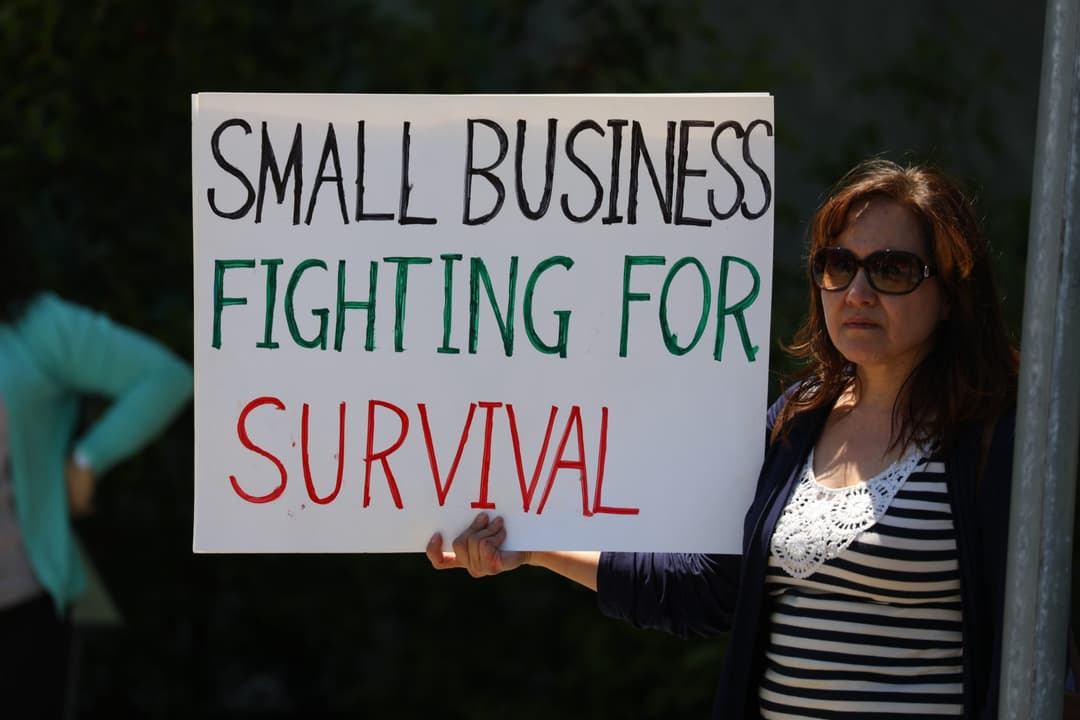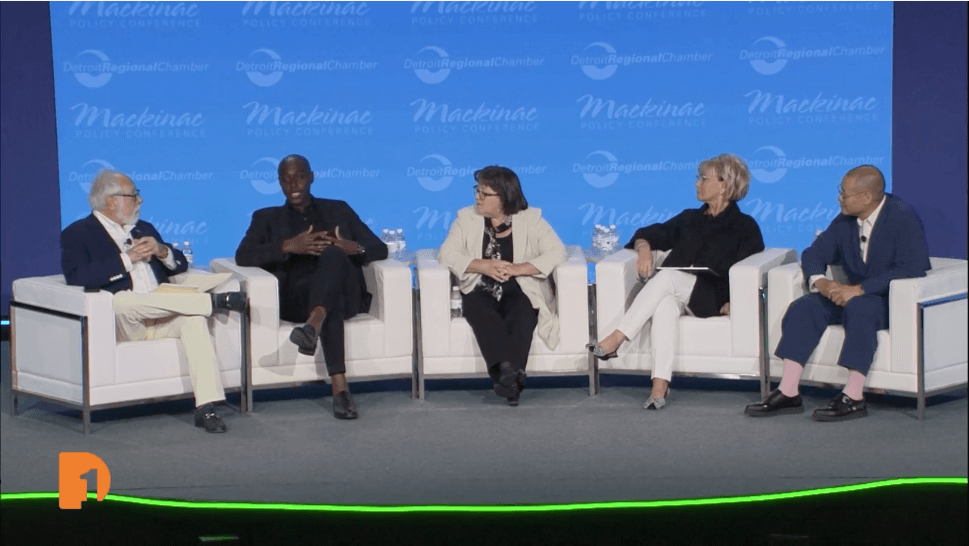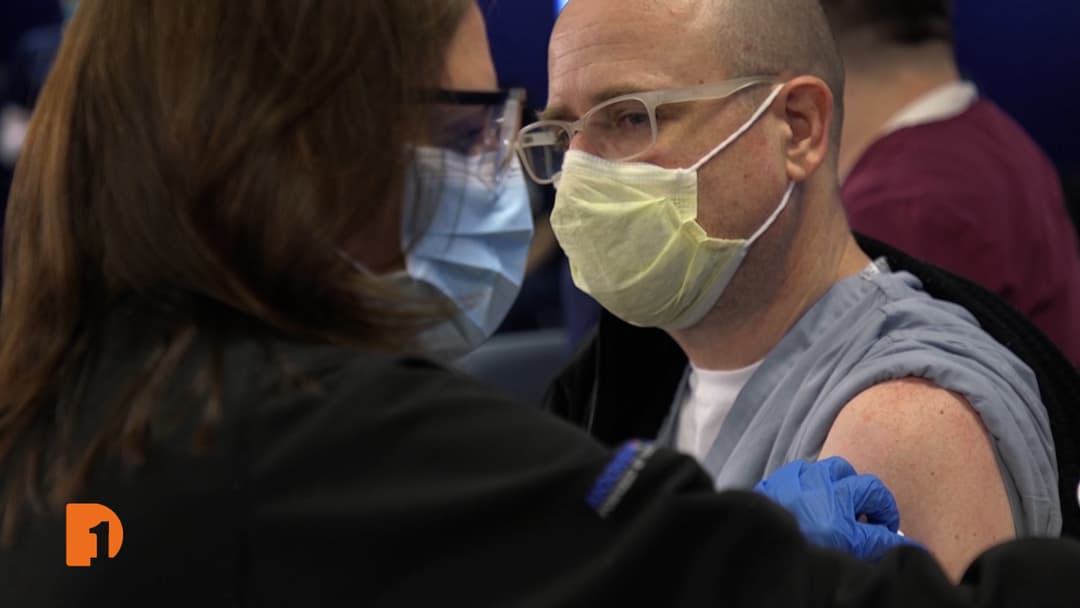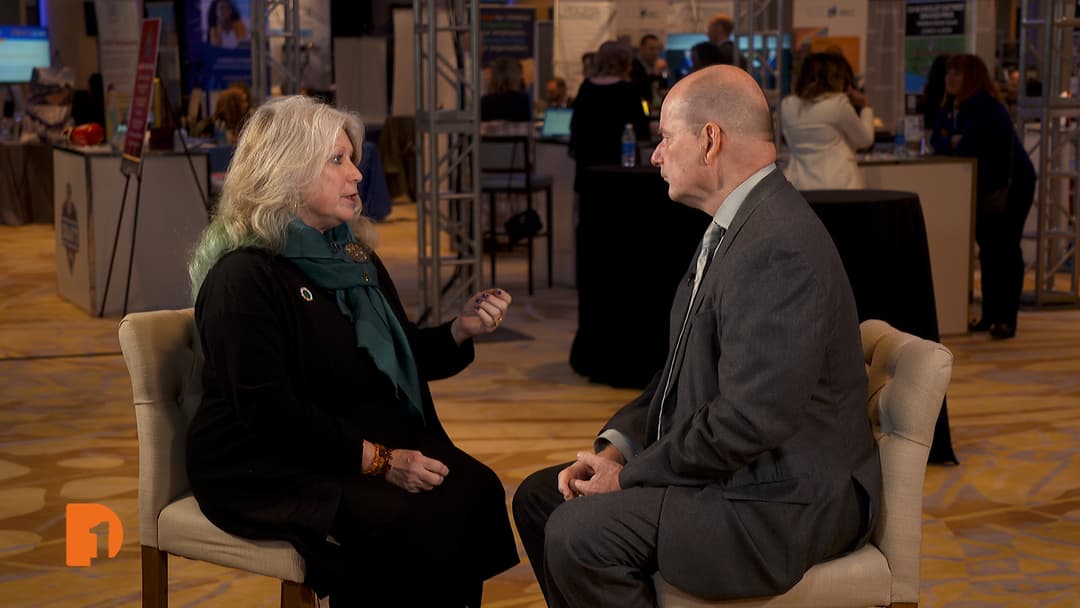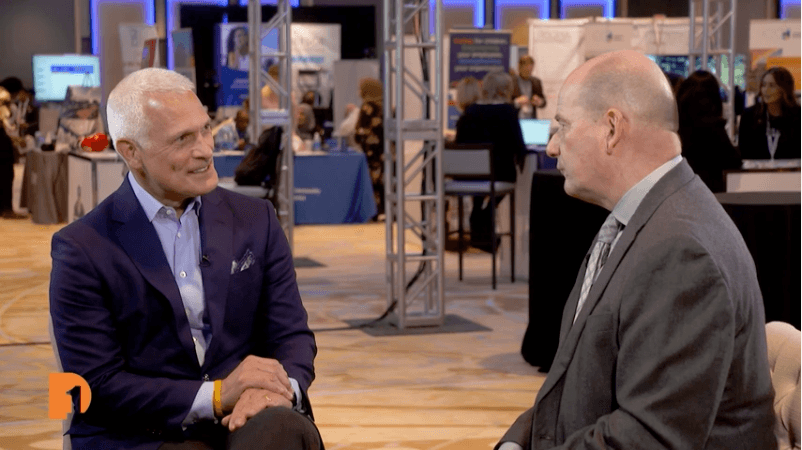What will it take to reopen factories in Michigan?
May 8, 2020
Is re-opening a factory as simple as flipping a switch?
Nolan Finley talks to President & CEO of the Michigan Manufacturers Association John Walsh about what re-opening factories during the pandemic actually looks like.
Read full transcript
Nolan Finley John Walsh, president and CEO of the Michigan Manufacturing Association. Thanks for joining us on One Detroit.
John Walsh, President and CEO, Michigan Manufacturing Association Thanks, Nolan. Glad to be here.
Nolan Finley It’s good to have you, John, and you’re going to talk to us about the need to get Michigan’s manufacturing segment open as soon as it’s safely possible to do so. What’s the sense of urgency, John
John Walsh, President and CEO, Michigan Manufacturing Association Well, it’s a variety of levels, but first and foremost is recognizing that COVID certainly is a health risk. Absolutely. Without question. But it’s also an economic risk and the longer that people are not working, it’s a threat to their household income, as well as the state’s financial viability in the nation. So, getting folks back to work safely is as critical.
Nolan Finley Turning a plant back on not as simple as throwing a switch, is it John?
John Walsh, President and CEO, Michigan Manufacturing Association No, it takes a bit of time. So you’re going to want to bring some folks in. The machines have been idle and some of the plants they need to be to be really at a simple level. They have to be greased up and ready to go. They need to warm up. Employees are gonna have to come back a little early to learn and be trained on what might be a different looking floor or procedures to effect social distancing so that people are comfortable and then they can get started.
Nolan Finley These plants are going to have to be redesigned in many cases to allow for safe operations, new protocols put in place, new layouts, as you said, to allow for social distancing. Personal protective equipment needs to be ordered and distributed in place, right?
John Walsh, President and CEO, Michigan Manufacturing Association That’s correct and what our manufacturers are following is there are already recommendations from the CDC and from OSHA that are easy to understand and effective. Now, for a good Republican like me, to willingly say a federal agency is a good thing, is always kind of different. A little humor intended there. But I’ll tell you what. They’ve done a nice job. It’s pre-screening. It’s social distancing. It’s the use of personal protection equipment when you can’t effect the social distancing, training, communication and then an administrative plan, there’s a lot of details behind all that. But those concepts are simple and easy to understand and they can be implemented.
Nolan Finley So you have some examples to follow. About half of your sixteen hundred members at the M.M.A. are up and running. Still, they’re making products that are deemed essential. What has been their experience throughout this pandemic and how have they been able to protect their workers?
John Walsh, President and CEO, Michigan Manufacturing Association They follow those procedures that I just mentioned and they’ve done it successfully. We’re not aware of any risks that are coming from risks that haven’t been mitigated, at least at the facilities that are operating. They appear to be operating safely. We’re not hearing about an outbreak at this particular facility or that facility. So, it appears here and across the country where manufacturing is operating that by using these procedures, they are safe.
Nolan Finley Do you believe manufacturing could be a safe enterprise? And as has been demonstrated in a number of factories, it is a safe entering enterprise but what sort of things need to happen to give workers confidence to return? Should there be some sort of state inspections of plants and factories?
John Walsh, President and CEO, Michigan Manufacturing Association So I think that’s a key question, Nolan. Regardless of how I might feel or how a stakeholder or decision maker might feel, it’s down to the employer and the employee. Are they capable and confident. The manufacturing has always been able to mitigate risks. It is inherently a situation where danger exists. Plants stamping plants. You know, all that goes on in the manufacturing facility. So, it’s that that communication between the employer and the employee that’s key. Following these provisions, making sure that they’re comfortable, understanding that there is some federal or state authority, I think is critical to folks. I would maintain that I think that we have sufficient oversight capabilities with OSHA and MIOSHA, but we’re in conversations with my ocean to talk about what their role might be, perhaps slightly larger to go after these new safety issues.
Nolan Finley Now, John, we’ve got about six hundred fifty thousand manufacturing workers in Michigan. What’s your concern coming out of this in terms of job losses? How many of those folks are not going to have jobs when the shutdown ends?
John Walsh, President and CEO, Michigan Manufacturing Association It’s tough to say a number, Nolan. Simply because we don’t maintain that kind of data. Companies are not always willing to share with you what their intentions are or where they’re at exactly. Whether they’re a member of MMA or not. But I think it’s safe to say that there will be thousands of employees that won’t have a job to go back to. Whether it’s COVID-related, a diminished number of employers because of this or the slowness in the economy now. So we took up an economy that was moving along pretty healthy and in a healthy manner and stopped abruptly.
And it’s going to take time for people to begin buying things. So I think we have to be realistic. Even if manufacturing were able to turn on like a light switch, it’s going to take a bit of time for demand to creep up and get back to that full employment. And if I can, I want to make a really important point. What’s incredible about all of this? That health and economic risk that COVID represents. Just six weeks ago, one of the biggest issues our members were facing, if not the biggest, was finding talent, keeping people on the job. And now we’re going to be in a situation where they may not be able to call all of that talent back.
Nolan Finley Now, John, one of the concerns I know you’ve expressed is that manufacturing other parts of the country and other parts of the world, those engines are starting to start to restart and orders are coming in to Michigan manufacturers who can’t fulfill them because their plants are closed. What’s the risk of that?
John Walsh, President and CEO, Michigan Manufacturing Association It’s a very real risk. What we’re hearing from our members that are in a non-essential industry, but they’re still having orders to be filled. We have some that are in the supply chain for the RV industry, for instance. That isn’t a central industry, but it is operating at full force in Indiana, a state that has reduced some of its restrictions. And they’re facing a work order, purchase order, and they have to make a decision and sometimes the order comes with the command that you will do this for your face, the contractual penalties that we have, or I may have to go somewhere else. Those are very real situations and troubling for manufacturing that’s trying to do right under the executive order but still maintain their business.
Nolan Finley So, John, what do you need at the Michigan Manufacturers Association?
John Walsh, President and CEO, Michigan Manufacturing Association So we’re continuing our dialogue with the governor’s office and we will answer every question that she and other decision makers have about safety. What we would like is just a clear idea of when and how.
Let us know the date that we make you comfortable to move forward. And how is it going to be? Can we have a week to get tuned up and then start? Well, we’re hoping for is maybe that kind of a message this week. Please get started. I’d like to get manufacturing fully operational May 15th, just making that date but that would be a good message for us.
Nolan Finley John Walsh, President / CEO, Michigan Manufacturers Association, thanks for joining us today on one Detroit.
John Walsh, President and CEO, Michigan Manufacturing Association Thank you. I appreciate it.
Stay Connected
Subscribe to One Detroit’s YouTube Channel.
Catch the daily conversations on our website, Facebook, Twitter, and Instagram @detroitperforms
Related Posts
Leave a Reply
Your email address will not be published. Required fields are marked*











